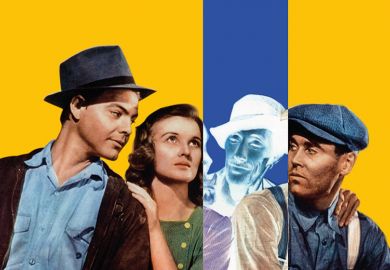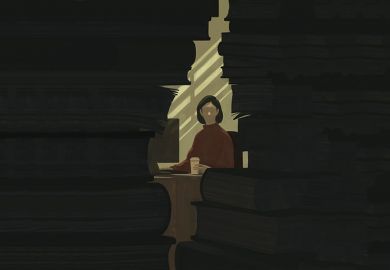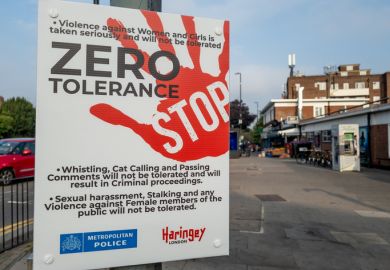The University of Southern California has announced that C. L. Max Nikias will step down as president.
The move comes amid a growing scandal over abuse of students by a campus gynaecologist, George Tyndall, and other incidents in which the university is perceived to have failed to act on misconduct by powerful officials. Despite growing calls for his resignation, board leaders until 25 May backed Professor Nikias, who is credited with raising billions of dollars for the institution and using that money to recruit top students and faculty members.
On 22 May, after 200 faculty members called for Professor Nikias to be replaced, the executive committee of the board issued a statement saying that it had “full confidence in President Nikias’ leadership, ethics and values and is certain that he will successfully guide our community forward”.
But on 25 May, a statement from the same committee announced a new direction.
“We have heard the message that something is broken and that urgent and profound actions are needed,” the statement said. “Today, President Nikias and the executive committee of the board of trustees have agreed to begin an orderly transition and commence the process of selecting a new president. We recognise the need for change and are committed to a stable transition. Please know that our actions will be swift and thorough, but we ask for your patience as we manage a complex process with due diligence.”
The statement concluded by saying, “There is nothing more sacred to this board than the well-being of our students. We will be guided solely by what is in the best interest of this great university.”
Since the Los Angles Times first reported on the abuse of female students seeking treatment in the campus health centre, more than 300 students have come forward with complaints about how they were treated. Some reported having alerted officials about what was going on – raising questions not just about the conduct of the doctor but of the university in failing to stop abuse.
John Manly, a lawyer who is now representing 80 former students suing the university, said that the departure of Professor Nikias should be viewed as a first step in what the USC needs to do.
“The resignation of Dr Nikias is the first step in a long process of healing for the victims of Dr Tyndall,” he said. “It occurred because students, faculty and alumni pressured [the] board of trustees to do the right thing. It is our hope that their pressure will continue until the university reforms the culture which has enabled sexual abuse and holds all of the enablers accountable so this will never happen again.”
The Times article detailed complaints that Tyndall photographed female students while examining them, touched them inappropriately and made sexually suggestive comments while examining them. Many of the female students were from China and may have felt particularly vulnerable to him. Dr Tyndall denied wrongdoing. But much of the anger on campus isn’t just about him, but about how the university handled the allegations.
A USC inquiry confirmed reports of inappropriate behaviour on his part last year, but he was allowed to resign, and the USC did not inform his patients or state medical authorities of its findings. The university now says that “in hindsight”, it should have reported him. Since the initial report, more women have come forward to say that they reported Dr Tyndall years ago, leaving many to believe that the university could have prevented many women from being abused had it acted earlier.
Many of those criticising the university over the Tyndall case are also noting the case of Carmen Puliafito, the now former dean of the medical school, who lost his job amid a series of stunning reports in the Times. Prior to resigning as dean, the newspaper reported, he had spent considerable time socialising with criminals and others who said that he used methamphetamine and other drugs with them.
The newspaper also reviewed photographs showing the dean partying with these companions in a variety of locations, including his USC dean's office. He resigned as dean shortly after a woman overdosed while with him in a hotel room, but he maintained his faculty role.
In back-and-forth statements between the university and the USC after the newspaper broke the story about Dr Puliafito, the university suggested that it had only recently learned of the accusations against him. But the Times described a series of inquiries over 15 months that it made to the university seeking information about the then dean’s conduct. In one case, a reporter delivered a sealed note requesting an interview about the matter to Professor Nikias’ home, only to have the note returned, unopened, the next day by courier with a letter from the university’s vice-president for public relations and marketing saying that the reporter had crossed the line.
Then the university faced another scandal over the professor selected to succeed Dr Puliafito as medical school dean.
In October, the university announced that it had lost confidence in Rohit Varma and that he was no longer dean. The university acted after the Times told officials that it was about to publish an article about how Dr Varma treated a female medical school fellow. According to the Times: “The woman accused Varma of making unwanted sexual advances during a trip to a conference and then retaliating against her for reporting him, according to the records and interviews. The USC paid her more than $100,000 (£75,000) and temporarily blocked Dr Varma from becoming a full member of the faculty, according to the records and interviews.” Later, however, the university promoted him to dean – at least until the newspaper called with its story.
The faculty letter calling for Professor Nikias to be ousted focused on what professors see as a pattern.
“The university administration's actions have been wrong at every turn, and not only in hindsight,” the letter says. “In this case, as in prior cases, faced with an ongoing pattern of serious wrongdoing by a powerful university official, the university has kept the wrongdoing quiet, settled financially with the wrongdoer in secret, and denied any responsibility on the part of the university. There has been no public report on the two cases involving USC medical deans, nor any visible attempt to determine what university administrators knew and when they knew it and why they waited as long as they did to take action.”
This is an edited version of a story that first appeared on Inside Higher Ed.
Register to continue
Why register?
- Registration is free and only takes a moment
- Once registered, you can read 3 articles a month
- Sign up for our newsletter
Subscribe
Or subscribe for unlimited access to:
- Unlimited access to news, views, insights & reviews
- Digital editions
- Digital access to THE’s university and college rankings analysis
Already registered or a current subscriber?








